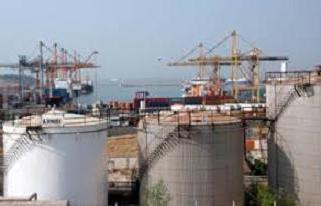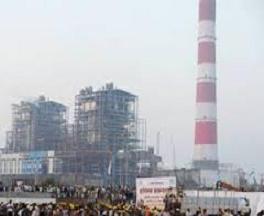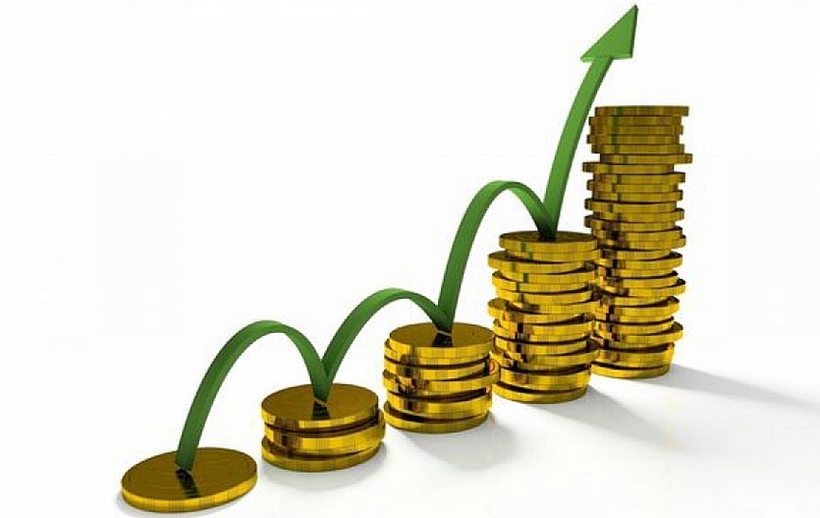Geography, geology and geodesy
Countries leading in world oil production and export natural gas iron ore and T. Specialized products are exported to other countries and flows of other goods come towards them. Half of foreign trade turnover falls on countries Western Europe having extensive mutual trade within the framework of the single European Union. THEORY OF ECONOMIC AND GEOGRAPHICAL POSITION Zoning of countries, regions of territories within the country the most important method Geography studies can be carried out by assessing their features in nature, economics, location...
1.17.
Nature material world Universe , in essence basic object studying science. In everyday life, the word “nature” is often used to mean natural habitat (everything that is not created by man).
International division of labor- specialization of individual countries and territories in the production and export of certain goods and services.
Specialization is determined by natural and socio-economic factors that make it possible to produce specific types goods and services or the same goods and services, but cheaper or of higher quality.
System foreign economic relations based on the international division of labor is calledinternational economic relations(IEO).
The division of labor was basedinternational production specialization,developing in four main directions: intersectoral, subject, technological and detailed.
Intersectoral specialization,covers products of the primary sector (mainly agricultural and mining industries). Countries are leaders in the world production and export of oil, natural gas, iron ore, etc. These are all examples of intersectoral specialization.
Subject characteristic for the manufacturing industry, that is, for the production and export of finished industrial products (cars, sea vessels, plastics, etc.).
Technological specializationarises as a result of a “territorial gap” in a single technological chain in the production of a certain product (remember the characteristics of the global aluminum industry).
Detailed specializationrepresents another form of IEO - cooperation, meaning joint production of certain products.
Specialized products are exported to other countries, and flows of other goods meet them. This is itforeign trade of goods.mi.Through channels foreign trade About 1/5 of world GDP is sold.
Finished industrial products predominate in global foreign trade. Half of the foreign trade turnover falls on the countries of Western Europe, which have extensive mutual trade within the framework of the single European Union.
THEORY OF ECONOMIC-GEOGRAPHICAL POSITION
Zoning of countries, regions, territories within a country - the most important method of studying geography - can be carried out by assessing their characteristics in nature, economy, population distribution, etc. IN economic geography it is especially important to defineeconomic-geographical situation(EGP) territories. EGP is, first of all, the relationship of a given object to other objects that have a certain influence on its development.
However, as development social production the state becomes less dependent on natural factors. If only for this reason, EGP is not something frozen - it is constantly changing and depends on the development of transport, foreign trade and other types of international relations.
This is why the economic geographical location cannot be elevated to an absolute, explaining to them the economic backwardness of some countries and the prosperity of others. African countries The Mediterranean region has a very favorable position, however, it is highly industrialized and cannot be called. At the same time, Australia New Zealand and especially Japan, being in to a certain extent isolated from Western Europe and the United States, they took prominent places in the world economy.
Countries without access to the World Ocean experience obvious inconveniences. Main reason- too high financial costs to pay for transit cargo. They especially suffer from this developing countries: Bolivia, Burundi, Burkina Faso, Malawi, Mali, Nepal, Chad, etc. It is no coincidence that many landlocked developing countries are officially classified by the UN as least developed (by the way, almost all of them are located in Africa).
Inland and island countries, naturally, are not doomed to “stagnation.” As socio-economic progress develops in these countries, the current inconveniences of their economic and geographical position will either begin to dull or disappear altogether (Austria, Hungary, the Czech Republic, Switzerland), which are landlocked but belong to the developed countries of the world.
Thus, EGP is determined by various reasons:
Transport-geographical,those. position in relation to transport network(taking into account its capacity, carrying capacity of communication routes, degree of congestion, speed and cost of transportation). Particularly noteworthy is the coastal location, which at all times has been a significant factor in economic development;
Industrial-geographical,i.e. the situation regarding energy sources, industrial mining and processing centers, scientific and technical bases;
Agrogeographical,i.e. the situation regarding food supplies and main centers of consumption of agricultural products;
Market, i.e. the situation regarding markets for products (both means of production and consumer goods). It is the most important factor influencing the location of production;
Demographic,i.e. the situation regarding clusters of concentration of population, labor resources and scientific and technical personnel ( educational level);
Recreational regulations, i.e. regulations regarding places of recreation and tourism.
In this case, zoning comes as if “from above” - from the entire territory of the mainland, the country, which is divided into large regions(districts) of one kind (natural, administrative, economic, etc.). Every large territory(macro level), in turn, can be divided into meso-level regions and so on up to the micro level.
Most often under geographical term“position” refers to the location of an object or territory at a certain longitude and latitude. But they alone can tell little about the relationship of any item to other objects. And then, to clarify the situation, the presence of nearby seas, mountains, plains, large rivers etc.
In geography economic situation determined not only in relation to physical-geographical data, but also in relation to something created by human hands. The economic and geographical position of a country, region, or locality always includes its relationship to other objects that influence its economic development, for example, trade routes, large industrial centers.
Formation of the EGP
Economic-geographical location is a historical category. During the development of the object itself, as well as other objects surrounding it, certain changes occur, which to varying degrees influence the EGP. An example would be the construction of new railways, development of coal deposits or metal ores, capable of radically changing the economic and geographical position of not only individual cities, but also entire regions.
The formation of EGP occurs under the influence of many factors, here are some of them:

The economic and geographical position can be favorable or unfavorable. A favorable situation provides an opportunity for successful economic development, and whether this opportunity will be realized largely depends on historical, social and economic conditions.
The importance of EGP
How a country's position affects its economic development can be examined using specific examples.
Contributed successful development in this country of gardening and vegetable growing. The cultivation of olives, grapes, and peaches has been carried out here since the distant historical past. Greece exports citrus fruits to almost all EU countries and the country is considered a leader in Europe in the production of cotton and tobacco. Being the historical center of the Mediterranean, Greece has always had a developed merchant fleet. And in our time, this state has the largest merchant fleet in the world. 
First of all, it was influenced by the fact that this country still has significant influence in the Asian region. Due to the fact that the country is located on the Hindustan Peninsula, maritime trade routes, passing along Indian Ocean, have always played a significant role in its economic development. It is along sea routes that India trades with the whole world. And the good ones natural conditions for development agriculture and the presence of large reserves of certain minerals contribute to India having something to offer the rest of the world.
I was brainstorming this question with my friends while studying at university. Moreover, after an object that, it would seem, To economy, neither to geographical location has not the slightest touch - after philosophy. Although today I am still inclined to think that it is philosophy that determines this very economic condition any of the countries. But more on that below. First, we need to define the terms and specify what determines the economic success of a country and what is included in the concept of “geographical location.”
Geographical location and economic success
I'll start with the second one. Economic development determined by three indicators. Once there were four of them, this also included an indicator of external debt. But somehow it turned out so strange that countries with high level life turned out to be the biggest debtors. And, after some consultation somewhere up there, this indicator was removed. There are only three left:
- Interior Gross Product per person in the country;
- economic infrastructure;
- level and quality of life of the average person.
Now I'll figure out the geography. Geographical location is terrain indicator, external environment, natural and climatic conditions.

How geography and economics interact
Of course, a temperate climate and rich mineral deposits can contribute to economic growth. However, there are an incredible number of countries in the world with the richest natural resources, nose low level life. How far to go - Russia, Kazakhstan, Ukraine- countries according to their own geographical resources could occupy leading positions in the quality of life ranking published UN. However, alas and ah.

There is such an economist, American, Nobel laureate - Gary Becker, so in his opinion, and almost all the leading economists in the world agree with him, that the main and main variable influencing the standard of living of a country is... intelligence. People, we are human, more precisely, our level of education and sophistication, our philosophy of building society- This the main indicators influencing economic growth. Today I understand why then, as students, after a philosophy lesson, we heatedly argued, discussed and reasoned about politics and economics, about the development of the state and the factors influencing it.
Zoning of countries, regions, territories within a country - the most important method of studying geography - can be carried out by assessing their characteristics in nature, economy, population distribution and other parameters. In geography, different zoning options are used, and in geographical sciences- determination of the geographical location that may be physical-geographical location(FGP) and economic-geographical location(EGP). FGP - location of any object (country, region, locality etc.) in space relative to physical-geographical data (equator, meridian, mountains, seas, etc.) EGP is the relationship of a given object to other objects that have a certain influence on its development. At certain stages of history, the economic and geographical position had a noticeable impact on the development of entire states and even continents. For example, in the 17th-19th centuries, countries that had access to the sea and Atlantic Ocean, and also those who were near him received greatest development due to its transformation into a great trade route.
At the same time, as social production develops, the state becomes less dependent on natural factors, i.e. EGP itself begins to depend on the level of development of transport, foreign trade and other types of international relations. Therefore, the economic-geographical position is not an absolute measure characterizing the economic backwardness of some countries and the power of others. The African countries of the Mediterranean have a favorable EGP, but they are not highly industrialized and developed, while Australia, New Zealand and, especially, Japan, being to a certain extent isolated from the countries of Western Europe and the USA, occupy prominent positions in the world economic system.
However, certain difficulties of the unfavorable economic and geographical position are also reflected in the modern period.
For example, countries without access to the World Ocean experience obvious inconveniences. The main reason for such economic troubles is too high transport costs for the delivery of goods in transit. Developing countries are in particularly unfavorable conditions in this regard: Bolivia, Burundi, Malawi, Mali, Nepal, Chad and others. That is why many developing countries located in Africa and landlocked are officially classified by the UN as least developed. Small island countries that lie away from the most important sea routes and seem to be lost in the Ocean, for example, Mauritius, Seychelles, Tonga, are experiencing very similar difficulties. The colonial era, which dragged these countries into illegal economic relations, had a particularly hard impact on their economy.
Inland and island countries, of course, are not doomed to economic “stagnation.” As socio-economic progress develops in these countries, the current shortcomings of their economic and geographical position may be smoothed out to a large extent and even disappear completely. An example here would be Austria, Hungary, the Czech Republic and Switzerland, which are landlocked but belong to the developed countries of the world. A thorough study of the positive and negative aspects economic and geographical location can bring significant economic benefits to any state, for example, through the rationalization of transport construction and trade policy.
Thus, EGP is determined by various reasons that change over time: transport-geographical, industrial-geographical, market,
demographic and recreational regulations. In this case, zoning occurs as if “from above” - from the entire territory of the continent, the country, and is divided into large regions (districts) of the same kind - natural, administrative and economic. Each large territory (macro level), in turn, can be divided into medium-sized areas (meso level) and further, to small areas (micro level)








